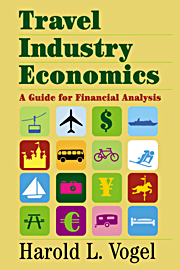Chapter 1 - Economic perspectives
Summary
Travel broadens the mind.
It also costs money and takes up time.
In this chapter we examine the fundamental economic factors that affect all aspects of the travel and tourism business. The perspectives provided by this approach will enable us to see how travel industries are defined and fit into the larger economic picture. They will also form a framework for understanding the financial features that guide investments in this field.
Time concepts
Alternatives
You need time to get from here to there. And given that time-transport machines are still to be seen only in science fiction films, it is worth our while to spend a little time to understand the economic value of time.
Time for leisure or business travel comes out of a budget that includes time for work, time for play, and time for taking care of the necessities of life. But in recent years the boundaries between these categories have become increasingly blurred. For instance, we associate what is loosely known as “leisure time,” as time in which people are free from having any sense of obligation or compulsion to do anything. Yet we could just as easily characterize the term leisure as simply time not spent at work. No matter what the definitional preference, however, the essential economic fact is that time has a cost in terms of alternative opportunities foregone.
- Type
- Chapter
- Information
- Travel Industry EconomicsA Guide for Financial Analysis, pp. 3 - 32Publisher: Cambridge University PressPrint publication year: 2001



